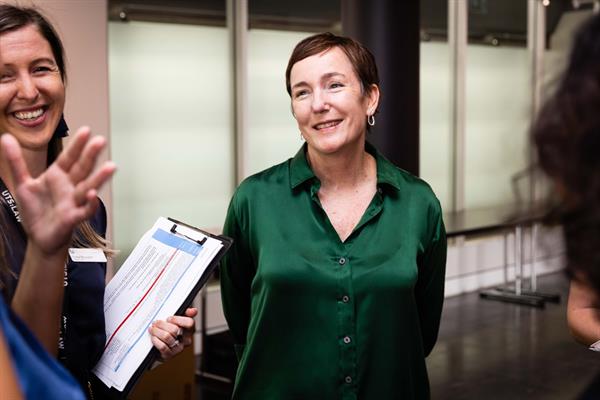- Posted on 11 May 2021
- 3-minute read
Self-representation creates barriers for women in the Family Law Courts.
Women who have experienced family violence are often unable to afford legal representation in the Family Law Courts, and report that representing themselves disadvantages their cases, according to researchers led by Dr Jane Wangmann from the University of Technology Sydney.
Family violence is a common feature of cases brought to the Family Court. A high proportion of those who raise these issues are self-represented.
“No straight lines”: Self-represented litigants in family law proceedings involving allegations about family violence, a new study published by ANROWS, found that most people who represent themselves do so because they fall into the wide gap between being wealthy enough to afford a private family lawyer, and meeting the strict criteria to be eligible for legal aid.
Despite a number of services providing once-off information and advice, it is very difficult for self-represented litigants to obtain ongoing legal advice that is specific to their case.
Without this legal guidance, those representing themselves often do not have realistic expectations of the process — a fact which significantly disadvantages their case.
Researchers interviewed self-represented litigants, lawyers and judicial officers connected with these cases. They also conducted observations of court proceedings and reviewed court files.
Without a lawyer guiding them, many women simply did not know what was available and what they could ask for.
They found that those representing themselves were often unfamiliar with Australia’s complex family law system — in particular, they are often not prepared for the Courts’ heavy emphasis on paperwork and negotiation, and are unable to manage these in a way that supports their case.
The study also showed that victims of family violence who represent themselves are not always safe from violence in the courtroom and court precinct. Accessing safety measures proved to be a real gap: “without a lawyer guiding them, many women simply did not know what was available and what they could ask for,” said Dr Wangmann. “Indeed, for a couple of women it was only in their interviews for the research project that they learnt about safe rooms or alternative means of giving evidence”.
When self-represented litigants lack knowledge of the safety measures available to them, courts sometimes fail to employ appropriate processes, leaving them more exposed to ongoing violence.
Those who have experiences of trauma, including trauma stemming from experiences of family violence, find it more difficult to prepare and present their cases to the court. Experiences of violence in the court precinct—or feelings of being unsafe—have an additional impact on how a self-represented litigant presents themselves in court, and the success of their case.
The report makes a number of recommendations, including the need for enhanced access to lawyers, and increased provision of legal advice and more assistance with ongoing litigation, including in languages other than English. It also suggests there may be cause to simplify the legislation and processes surrounding the family law system.
We have long had evidence that women affected by violence can be retraumatised by court proceedings.
ANROWS CEO Dr Heather Nancarrow welcomed the findings and recommendations of the research, noting that they come at a time when Australia’s family law system is being actively reviewed and reformed.
“We have long had evidence that women affected by violence can be retraumatised by court proceedings,” she said. “This report shows that not only is that true, but that this trauma affects the outcomes of cases, including how safe the outcomes are.”
“This report confirms the need, as ANROWS has highlighted in previous Family Law inquiries, to enhance understandings of family violence within the legal system, as well as holistic case management for litigants and families”.
Additional background
Data from the Australian Institute of Family Studies has previously shown that, of parents who used the court system to resolve parenting issues:
- 54% reported that there had been physical violence in the relationship prior to separation
- 85% reported emotional abuse in the relationship prior to separation.
This is Law research in action
See where a Law research degree could take you.






